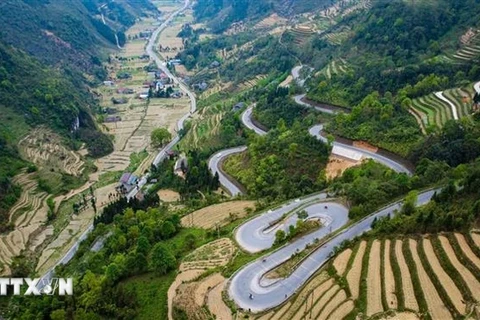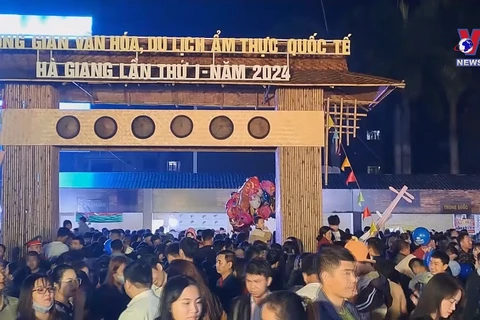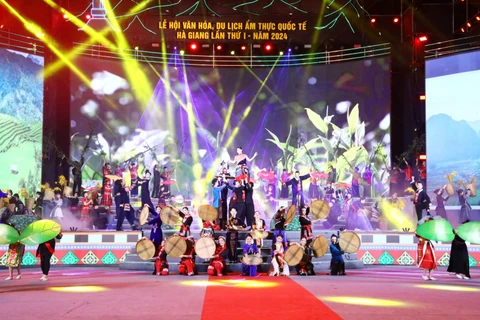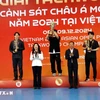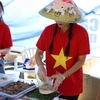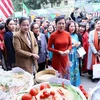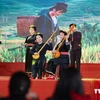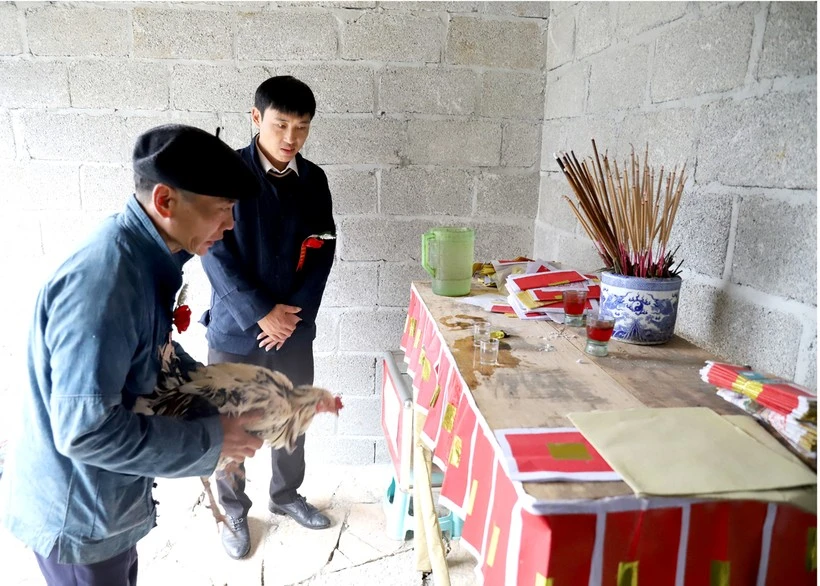
Hanoi (VNA) - Authorities of Dong Van district in the northern mountainous province of Ha Giang recently held a forest deity worship ceremony, where they also announced its recognition as a national intangible cultural heritage.
The ceremony is a long-standing social and spiritual tradition cherished by Co Lao residents in Ma Che village, Sinh Lung commune, Dong Van district, passed down through generations. This traditional ritual plays a vital role in uniting the community, fostering a respect for living in harmony with nature, the forest, and water protection - essential resources for sustaining human life.
The Co Lao residents, deeply influenced by polytheistic beliefs and animism, perceive the world as a harmonious blend of heaven, earth, and water, with spirits residing in all living things.
To ensure a life filled with peace, health, prosperity and bountiful crops, they believe that multiple offerings are necessary. The forest deity ceremony, in particular, is viewed as vital to secure harmony, healthy livestock, and abundant harvests.
The ritual in Ma Che village is meticulously timed, typically taking place between 7-9am on specific days: the third day of the third lunar month, the 9th day of the 9th lunar month, or the 29th day of the 12th lunar month.
In preparation, families contribute money to gather offerings two or three days in advance, ensuring a full family gathering for this significant occasion.
The offerings often include a male goat, a chicken, two bottles of wine, rice, incense, ceremonial paper, and other important items to the ritual.
Unlike other ethnic groups that establish shrines, the locals conduct their worship rituals in a unique manner, selecting a relatively flat spot beside a stone crevice, near a large tree within the village’s sacred forest area.
The ritual unfolds in two stages: "raw" and the "cooked" offerings, purchased with money collectively contributed by the villagers, demonstrating their solidarity. Through these acts of devotion, the entire village prays for year-round peace, health, bountiful crops, and healthy livestock.
The ceremony holds profound significance, serving as a source of spiritual strength for the community. It reinforces their faith in the presence of deities who accompany and support them, especially in times of need or hardship.
Moreover, the ritual of honouring the mountain and land deities plays a crucial role in preserving traditional culture. It also contributes to educating younger generations about the history and promoting environmental protection.
To celebrate the recognition of the ritual as a national intangible cultural heritage, Dong Van hosted a festival that brought this unique tradition to life.
The ceremonial portion featured traditional forest deity rituals led by Co Lao shamans in the sacred forest of Ma Tre village. Following the ceremony, attendees enjoy an array of traditional sport and cultural activities, including basket weaving, tug-of-war, and rod pushing. The festival also showcased cultural exchanges through music and dance performances involving the Co Lao and neighboring ethnic groups, drawing enthusiastic participation and support from the community.
The event aimed to raise public awareness of the importance of preserving ethnic cultural heritage, reviving traditional practices, and fostering local socio-economic and cultural development./.
